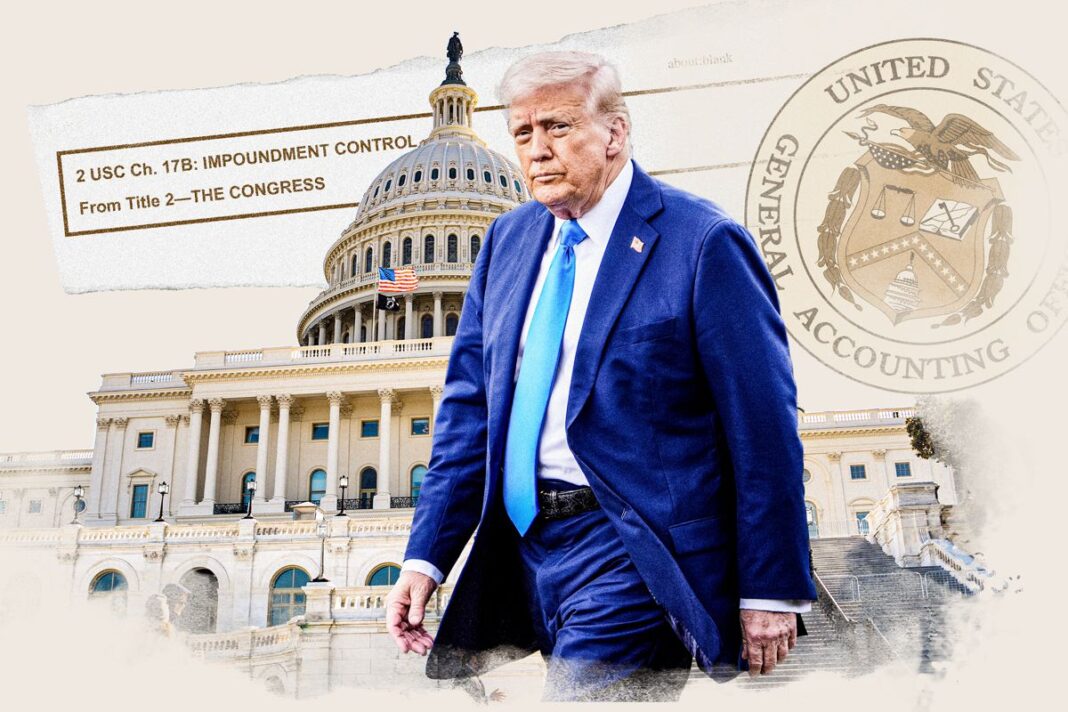The president can decline to spend money appropriated by Congress, with restrictions. Trump wants to reduce or clear away those restrictions.
The stage is set for a constitutional battle between President Donald Trump and a federal watchdog over the extent of presidential authority on spending, as Trump seeks to make sweeping federal spending and personnel cuts.
Trump and administration officials want to reduce existing restrictions on the president’s impoundment power, which allows a president to decline to spend money appropriated by Congress.
According to Trump, the Impoundment Control Act of 1974—which requires the president to seek permission to rescind, or officially end, funding—violates the Constitution and the separation of powers.
Specifically, Trump argues that the chief executive has broad authority to interpret and make decisions about congressionally mandated spending—including the decision not to disburse funding.
His critics, meanwhile, say that the White House is transgressing Congress’s power of the purse.
Since taking office, Trump and the Department of Government Efficiency (DOGE) have sought to identify and implement budget cuts, through actions such as shuttering or reorganizing federal agencies, mass staff reductions, and blocking funds.
In response, the Government Accountability Office (GAO)—the watchdog that oversees the Impoundment Control Act—has opened dozens of investigations into the executive branch.
The office issued its first finding on May 22, saying that the Department of Transportation had violated the impoundment law in its directive to revoke electric vehicle-related funding that had been mandated by Congress.
A series of lawsuits related to the issue is also pending in federal courts, meaning the issue could make its way to the Supreme Court.
Here’s what to know about the legal conflict and the potential court showdown.
Impoundment Use
In legal terms, impoundment refers to a situation in which the president declines to spend money appropriated by Congress.
It has been used often by presidents throughout history, beginning with President Thomas Jefferson.
In that instance, Congress called for the construction of 15 new gunboats at a cost of $50,000. Jefferson decided against it. In October 1803, in his third annual address, he informed Congress that the boats remained unconstructed and the money unspent.
The legislation had “authorized and empowered” Jefferson to build “a number not exceeding fifteen gunboats.”








